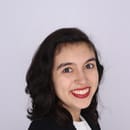Written as diary entries, Kate Weston’s latest YA novel is a funny and heartfelt story about a British teen determined to be a good feminist, while figuring out what that means, and her charming, embarrassing and inspiring journey of figuring out how.
“Diary of a Confused Feminist” follows Kat Evans who is still sorting her life out. She promises herself that this school year, she’ll be making changes to her life that will make her less of a walking disaster, such as: 1) keeping her diary every day like all the best journalists and writers do, 2) not obsessing over her crush Hot Josh because she doesn’t need a man to complete her, 3) not stalking said Hot Josh on Instagram and accidentally liking his pictures, 4) somehow managing to stop worrying about every single thing in her life, and, most importantly, 5) SMASHING THE PATRIARCHY—that is, after she figures out what it is and how one goes about dismantling it.
Though Kat may lack the grace it requires to meet her goals, she makes up for that with plenty of good humour as she stumbles through high school with all of its bullies, parties and crippling moments of self-doubt. With the help of her best friends, her parents and her diary, Kat may still figure out how to be a cool, fun feminist.
Kate Weston is a former stand-up comedian who still gigs from time to time and likes nothing more than a proper giggle. She lives in London with her partner and adorable cat Angus.
For this Author Spotlight, I ask how Kat’s character helped Weston grow, what writing this book as an adult reflecting on teenagehood means, and how “Diary of a Confused Feminist” is more than just a YA tale with the lessons and complexities of womanhood and feminism.
Did some of the funny teen moments you included in the book happen to you in real life, or were they conjured by your worst fears?
The majority of those moments were based on things that happened in real life but weren’t exactly what happened. For example, I once flung a tampon at a bus driver by accident when I was rifling through my purse. And I think we’ve all accidentally liked an old picture of someone on their Instagram and spent ages either trying to erase the whole internet as a result or planning to move to another country (I’m willing to accept that this could also just be me, though).
When you were writing through a teenage lens as an adult, what did you learn about yourself?
When I started writing “Diary of a Confused Feminist,” I’d just been through a really difficult time with my mental health. Therapy helped me identify that many of the things I was struggling with had started when I was a teenager; it’s just that when I was younger, I was far too afraid to tell anyone about them. So I really wanted to write a book that detailed some of the things I’d struggled with in the hope that if other young people were going through the same thing, then Kat Evans might be able to help them feel less alone or get help.
So when I was writing it, I was also going back to face a lot of my own thoughts and feelings. It wasn’t actually until after I’d finished writing “Must Do Better,” the sequel to “Diary of a Confused Feminist,” that I was diagnosed with OCD, which was a huge relief for me and has been a complete game changer. It explained a lot.
When I was a teenager, OCD was never presented in the way that it manifests for me and many other people though. In fact, the only character I remember seeing on TV with it at the time, actually convinced me I didn’t have OCD because their OCD was depicted as the stereotypical things needing to be clean and ordered all the time. So it was interesting to learn after writing the book that not only did I have OCD but a few people I was at school with also got in touch to say they had a lot of the same feelings and thoughts as Kat does growing up. It seems it was far more common than I knew and if we’d all felt able to talk to each other about it we might have felt more supported and less scared and alone. OCD is thought to affect 2.5 million adults in the US, and it can be utterly terrifying if you don’t know what it is.
So after writing Kat and seeing other people’s reactions to her, I believe even more passionately that talking about mental health can create life-saving changes for young people and adults.
In the publishing world, age categories seem to blur. Sometimes YA can crossover to read more adult, etc. While your book is a YA book, written for teen readers, you write about feminism in a way that some teenagers may not relate to since they all don’t have Kat’s agenda of being a hardcore feminist.
How do you think your book applies to the trend of age crossover in the publishing world, and what made you decide to write about feminism in such a way?
Firstly, I think young people today are the most politically and socially aware that young people have ever been. So I think I chose to write about feminism in the way that I did because I really didn’t want to underestimate any of my readers. From meeting young people when I go to visit schools and do events, I know that there are varying levels of knowledge about feminism out there and I felt it really important to write something that shows intersectional feminism and gives plenty of information whilst also leaving room for readers to find out about things themselves. And the great thing is, if there’s something that readers want more information about they can google it or follow influencers. There are also so many other books out there that give more information. I really recommend the book “Feminists Don’t Wear Pink” for example and following social media accounts like Bloody Good Period, Amika George who started the Free Periods campaign in the UK, Gina Martin, Laura Bates or Jameela Jamil. Kat’s also confused about feminism, she doesn’t always get it ‘right’ and learns that actually right and wrong are two very blurry things sometimes! We can’t always get it right, and owning our mistakes and accepting this is a very important thing.
How do you think parents should go about navigating this book if their teenager is reading it? Is there anything else you can say about the book’s reading demographic?
I’d say the book is really meant for ages 14 and up. There’s a lot covered in terms of anxiety and depression. The book’s really about the importance of being able to talk if you’re struggling and opening up to the adults in your life. So I guess if your teenager’s reading this and something comes up for them, it’s about just continuing to have a safe, non-judgmental space for them to talk and open up. There’s also a lot about period positivity in this book, which is something else I’m passionate about. I will never understand the taboo and shame around periods–they’re just a bodily function–and in the book, Kat Evans rallies against period shame and period poverty.
What were some of your memorable moments when you were in high school that compare to Kat’s experience?
I didn’t have a lot of friends at high school. Struggling with my mental health meant I found it hard to connect with people and was constantly scared I was going to be “found out.” I mostly sat on the outside looking in until I was a little older. I wish I’d had a group of friends like Sam, Millie and Matt, but I’ve been so lucky to get friends like them as I’ve gotten older. And those are friends that I end up causing the most mischief with. In fact, as I’ve gotten older, I’ve really found my people. I think there’s a lot of pressure when you’re at school to find your friends and be part of a group. But sometimes, like with me, it can just take a little longer to find your buddies.
What about the feminist fiction genre appeals to you, and why do you feel compelled to write it?
I feel like it’s really important to teach young people to support each other and lift each other up, which is something that feminist fiction is great at depicting. The kind of feminism I talk about in my books, and that Kat and her friends are trying to practice, is intersectional feminism (a term coined by Kimberlé Crenshaw). It’s so important to stand up for and protect each other and support everyone in fighting against abuse, violence, and inequalities. That’s really what Kat and her friends are campaigning for while having a lot of fun and a little bit of confusion along the way.
Many thanks to Kate Weston for answering my questions and sharing your personal story about dealing with OCD and anxiety. Having read your own experience and Kat’s own journey in the book, your writing portrays a beautifully truthful story.
I’d also like to thank Nicole Valdez from Simon & Schuster Children’s Publishing who extended this interview opportunity to me and offered me a copy of Kate Weston’s book. It had me remembering what it means to be a high school teenager again.


